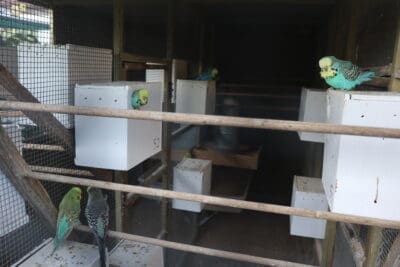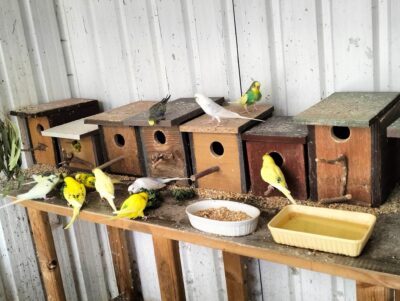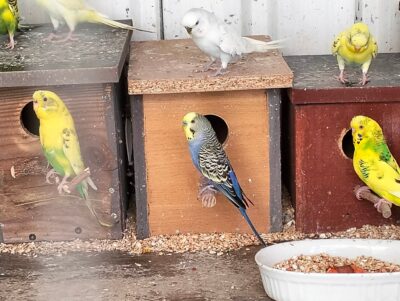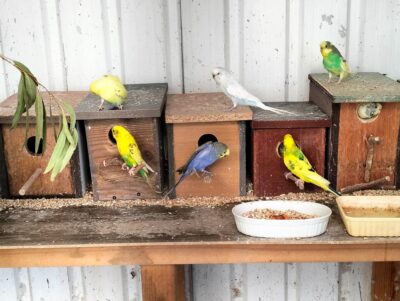
Colony Breeding Budgerigars: A Guide To Successful Breeding
Budgerigars, also known as budgies or parakeets, are popular and beloved pet birds around the world. They are easy to care for, highly intelligent, and entertaining to watch. If you’re a budgie enthusiast looking to breed these charming birds, colony breeding your budgerigars may be an excellent option for you starting out.

Colony Breeding – What Is It?
Colony breeding is a method of breeding birds where multiple pairs are housed together in a large aviary or flight cage. This allows for natural breeding behaviors, such as courtship and mate selection, to occur. It can be especially beneficial for birds that are social in nature, like budgies.
Advantages of Colony Breeding Budgerigars
- Natural breeding behaviors: In a colony breeding setup, budgies are allowed to interact naturally and choose their mates. This can lead to stronger pair bonds and more successful breeding.
- Increased fertility: The presence of other breeding pairs in the colony can stimulate hormonal changes that increase the fertility of individual pairs.
- Socialization: Budgies are highly social birds, and colony breeding can provide a stimulating and enriching environment for them. Socialization is important for the mental and emotional well-being of these birds.
- More efficient use of space: this allows you to breed more budgies in a smaller space than traditional breeding methods.
Colony Breeding – Keys to Success
- Choose healthy breeding stock: Before starting a colony breeding program, make sure you have healthy, genetically diverse breeding stock. This will help ensure the health and vigor of your offspring.
- Provide adequate space: Budgies need plenty of space to fly and exercise. A flight cage or aviary should be at least 1.8 m long, 1 m wide, and 1.8 m high for six pairs of budgerigars.
- Offer nesting boxes: Nesting boxes are essential for budgies to breed successfully. You should place each pair’s box in a sheltered area of the aviary so that they have their own space.
- Provide a varied diet: Budgies need a varied diet that includes seeds, fresh fruits and vegetables, and a source of calcium such as cuttlebone or mineral blocks.
- Monitor breeding activity: Keep an eye on your birds to make sure breeding activity is occurring. Signs of breeding include courtship behavior, nest-building, and egg-laying.
- Separate breeding pairs: Once a pair has laid eggs, it’s a good idea to separate them from the colony to prevent interference from other birds.
In conclusion, colony breeding budgerigars can be an excellent method for breeding budgerigars. It allows for natural breeding behaviors and can lead to increased fertility, socialization, and more efficient use of space. By following these guidelines, you can set up a successful breeding system and enjoy the joy of raising and caring for these beloved feathered friends.



